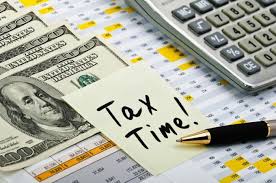Tax Preparation Services May Now Become Necessary
In today’s economy, self-employed people often have the greatest job security. The reward of entrepreneurship is independence, financial freedom and more. Imagine creating your own secure source of income–with unlimited potential! You can establish a great new home-based business that can be part-time or full-time… and even grow into a brick and mortar business. The choice is yours, and always will be when you’re a business owner.
Benefits of starting a tax business
- Earn $100/hour or more as an experienced pro
- Reduce your own tax liability
- Your skills will make you more marketable
- Work 3 months of the year and make a great income
- Have your summers and holidays free
- Be more secure – you control your own destiny
- Start at home with minimal expenses
It’s easier and less expensive than you think!
- Minimal start-up costs
- Get your tax business started quickly
- No franchise fees or royalties
- No accounting background or degree required
- We teach you everything you need to know and do it faster than you think!
- No need to reinvent the wheel – we offer tax manuals on policies and procedures, tax preparation marketing, personnel and expansion
Huge growth potential
Millions of Americans pay a tax professional to prepare and file their tax return every year and Congress continues to make more changes to the tax code. These changes make taxpayers even more confused and frustrated and they are seeking out the help of Tax Professionals more than ever.
As the number of taxpayers continues to grow, so does the need for qualified Tax Professionals. And now, with the recent changes to the U.S. economy, it’s more important than ever for taxpayers to claim all of the credits and deductions due them and pay no more than the exact amount of taxes they owe. Starting your own tax business will enable you to meet this growing demand and also give you the flexibility and security you deserve.

The Gloomy Future of the Tax Preparation Industry
Undertakers and those in the funeral and burial business will always be able to rely on a steady stream of customers. And because taxes are, of course, the other inescapable element of life, income tax preparers have enjoyed a similar level of job security for the past several decades. But changes in the demographics of both those in the industry as well as their clientele have created an element of uncertainty regarding the future of this profession. Taxpayers now have more options than ever when it comes to filing their returns, and preparers have been forced to offer an ever-wider array of products and services in order to maintain their business.
A Changing Marketplace
In 2017 there were about 152 million individual returns filed in America.1 And despite all of the recent changes, taxpayers still have three basic avenues to choose from when they file. About half of filers went to a Certified Public Accountant (CPA) or a tax preparation franchise such as H&R Block or Jackson Hewitt to have their taxes prepared.2 Filers with complex returns, such as those who have business-related income or deductions from corporations, partnerships or oil and gas leases, or day traders who will require complicated basis calculations will continue to use trained professionals to prepare their returns. But the majority of filers with simpler returns are being presented with more and more options that make it possible for them to accomplish this task on their own. Of course, these software programs have been available for years to allow even those with moderately difficult returns, such as someone who runs a side business out of his or her home and itemizes deductions, to file their returns electronically.
The Digital Age
The tax preparation process itself has steadily become faster and more efficient as more and more information is now available in digital format. A growing number of preparers can now import much or all of their client data from personal finance websites, such as Mint.com or bookkeeping programs such as Quicken, directly onto their tax returns with a single click instead of entering all of those numbers manually. And electronic signatures that are entered with the client’s verbal permission often make it unnecessary for clients to physically appear in the preparer’s office. Mobile apps now allow taxpayers who file short forms to bypass computer preparation altogether.
Value-Added Services
Smart tax preparers know that preparing a client’s tax return is also an extremely effective form of prospecting for other types of business. One of the key reasons for this is that most clients do not view their preparers as salespersons but rather as professionals or advisors. This strategic advantage allows those with the proper training, licensure, and experience to quickly ascertain a client’s overall financial situation and offer insurance or investment products, or other services that may be needed, such as auditing, bookkeeping or even comprehensive financial plans. The additional revenue that can be generated from this approach can be substantial in many cases.

How to become a professional tax preparer:
1. Create your PTIN
Anyone who prepares tax returns and charges a fee for their services is required to have a Preparer Tax Identification Number (PTIN) . There aren’t any educational requirements to get your PTIN. You can create one online on the IRS website. The process only takes about 15 minutes. You can also apply for a PTIN by completing and mailing in Form W-12.
2. Apply for an EFIN
If you plan to file tax returns electronically, the IRS requires that you have an Electronic Filing Identification Number or EFIN . You can complete your application quickly on the IRS website, here. You will also need to provide your fingerprints to the IRS unless you are already a certified licensed professional, like a CPA or attorney. It should take about 45 days to get your EFIN.
3. Register with your state
Every state is different. Depending on where you plan to work, you may or may not need to register as a tax preparer. Look up your state’s requirements before you begin accepting clients.
4. Work at an office
When you are just starting out as a tax preparer, you may find it helpful to work for an established tax prep service for a brief period. Not only will you be able to ask questions and gain experience during tax season, but you could also learn valuable lessons about the state and local requirements where you plan to start your business.
5. Choose a tax prep software
Every tax preparer is different. Depending on your level of experience in the industry, you may require certain things from your tax preparation software. Consider your needs first.
- How much support and tax filing assistance is included?
- Can you install the software on your desktop?
- Does it come in a cloud-based version?
- Can your provider also help you grow your revenue as you gain experience?

Market yourself
While there many ways to market your new practice, here are a few common ways that tax pros get the word out about their practices so that you can start to develop a plan around marketing your own practice:
- Build a website: A website is a must-have for a business today. Use your website to tell your potential customers about you and your business model, and to list contact information. Our tax pros have found that it’s important to include your picture on the website, and that understanding SEO is also a key factor in success. Some of our other recommended marketing tactics below will cover additional ways to build out your website.
- Connect on social media: Social media can help you connect with potential clients and others in the industry, and develop a brand that represents your practice. Twitter, Facebook and LinkedIn are all great platforms to establish a social presence and connect with clients, peers and others in the industry, and some tax pros link to their social channels on their websites. With a large and growing number of social groups and communities online, finding trusted and useful online communities to turn to for networking, information and help can sometimes be a challenge, so read our article on “5 Online and Social Communities for Tax Professionals” to get our recommendation on where to start.
- Network: In-person networking is important to growing your business as well. Many states and some cities offer local tax and accounting associations. A few national associations such as the National Association of Tax Professionals (NATP) have local chapters, and major accounting organizations like the AICPA and the National Association of Enrolled Agents (NAEA) have national conferences every year to help you network with industry experts and earn continuing education credits. Don’t forget your business cards at home! Read our article on “5 Reasons you Should Join a Professional Association” to learn about more of the benefits.
- Use content marketing: From testimonials and case studies to articles that showcase your expertise, content marketing can be a way to stand out in the industry. You can host content marketing on your own site and share it via your social media channels to spread the word. Get lessons from a pro about how to use content marketing to grow your practice.
- Use direct marketing: Flyers, brochures and emails can be helpful vehicles as you spread the word about your services. Some tax professionals include discounts and other incentives in their collateral. Consider advertising your services using bulletins distributed by community centers, churches, and grocery stores.
- Ask existing clients for referrals: Word of mouth is important to many clients who are looking for a tax pro, so don’t be afraid to ask your current clients for referrals. You may also consider rewarding clients for referrals with discounts or other incentives. If you don’t have any clients yet, set up referral program with your friends and family. Let them know now you are starting tax business — you can help them with theirs if they can refer some friends to you. Get tips on how to ask for referrals.
- Partnerships: Partner with other professionals who offer services that compliment, but don’t compete, with yours. For example, you may be able to partner with an insurance agent, offering services to his or her customers while referring the agent to your clients who are looking for additional coverage.
Services you can add to increase your revenue as a tax preparer
As a tax preparer, a lot of your income for the year is earned in just a few months. Naturally, you’ll want to maximize your revenue during that time. And, depending on your financial goals and needs, you may want to supplement with other services that you can do year-round. Here are some ways that you can continue to serve your customers and use your expertise to earn more money in and outside of tax season.
1. Offer bank products
Bank products are sometimes called “settlement solutions” or “refund transfers.” Bank products allow you to deduct your tax prep fee from the client’s tax refund, which means you can offer your services at ‘no out-of-pocket cost’ to your clients. You can even help them receive a portion of their refund right away, instead of waiting for the IRS to send the money.
2. Become a service bureau
This is one opportunity that is especially interesting once you’ve established yourself in the tax prep business. As a service bureau, you can diversify your revenue by reselling tax software that you trust using your own label/brand. You help other tax preparers grow their business, and as a result, your business grows, too.
3. Become an enrolled agent
This is one career move you can make that will set your tax business apart from the others. The enrolled agent status is the highest credential awarded by the IRS, but not everyone tries or succeeds in earning the title. To become an EA, you must meet a set of requirements that includes taking exams, passing a suitability check, and continuing your tax education.
4. Offer bookkeeping
If you are already preparing taxes for a business, it may be natural to offer bookkeeping as an additional service. Bookkeeping includes keeping track of an entity’s financial statements, transactions, expenditures, and income. As a tax preparer, chances are you already possess many of the skills needed to be a successful bookkeeper.
You need a high school degree to offer bookkeeping as a service. You can be certified or obtain a license if you choose, but it is not required. Still, having a license may help to attract more business, and the coursework could be beneficial in the long run.
5. Manage Payroll
Running payroll for a client business is another service that doesn’t require a specialized degree. There are a number of payroll software solutions that are designed to make payroll simple and accessible.
For many small business owners, hiring someone to manage payroll tasks is a worthwhile expense because they have more time to focus on earning and increasing revenue. For you, it can mean ensuring that your client is in compliance with the laws and their employer tax info is being properly tracked.